|
LISTEN TO THIS THE AFRICANA VOICE ARTICLE NOW
Getting your Trinity Audio player ready...
|
by and
As Mayra Raymundo drives to work each evening, she obsessively checks her rearview mirror. She’s terrified a cop will pull her over and find out she doesn’t have a driver’s license or car insurance. She would have to admit she is undocumented, risking deportation to Guatemala.
Raymundo, 31, works nights cleaning a private school outside Providence, Rhode Island. She earns $11.50 an hour. Without a car, Raymundo said she can’t earn a living to support her two young daughters.
“Basically, if you have a car, you can find work. If not, then no,” said Raymundo, adding that she could land a job that pays $15 an hour if she had a driver’s license. “Without a license, I live in constant fear.”
Raymundo and two of her co-workers, also undocumented, said they prayed for state lawmakers to approve a bill that would allow them to obtain a license. Rhode Island legislators have tried to pass this bill for more than 10 years.
Sixteen states, plus Puerto Rico and Washington, D.C., allow undocumented immigrants to receive driver’s licenses or similar IDs known as driving privilege cards, eliminating the chance of arrest for driving without a license, a common fast-track to deportation. More places are considering it as research shows earlier adopters reduced the likelihood of hit-and-run accidents, lowered insurance costs for drivers, increased the number of insured motorists on roads and improved poverty rates.
But immigration authorities are using driver’s license data to find the very people who are supposed to benefit from the new laws.
At least seven states have shared personal information from drivers with U.S. Immigration and Customs Enforcement since January 2020, according to a Center for Public Integrity investigation. Sometimes, immigration agents will ask motor-vehicle agency staff to run a facial recognition search to match a provided photo. Other times, they seek addresses and driving records for specific people.
Agents often say these immigrants are suspects in crimes, but sometimes they are searching for people they believe committed only a civil immigration infraction, such as overstaying a visa.
Some immigrant rights groups now question whether it’s too risky for undocumented immigrants to get licenses.
“There’s still a lot of work to do to ensure information is protected,” said Mayra Cedano, executive director of Comunidades Unidas, a Utah nonprofit that works closely with undocumented families. “A lot of folks in our communities said, ‘I won’t risk it. I won’t renew to risk being deported just to drive.’”
Some states verify ICE’s requests. Many do not.
Public Integrity asked every jurisdiction that allows undocumented individuals to drive how they handle requests from ICE. Their laws or internal policies varied widely, and some refused to explain them.
Most don’t require proof that ICE investigations relate to criminal activity rather than civil immigration infractions. When requests come their way citing child exploitation, drug trafficking or other such investigations, these states grant them, taking them at face value.
Only four states – New Jersey, New Mexico, Virginia and Washington – require agents to produce a court order or arrest warrant signed by a judge before handing over personal data. At least two other states, California and Hawaii, passed laws explicitly prohibiting motor vehicle departments from sharing information solely related to immigration enforcement with ICE.
Some of the other jurisdictions – like Washington, D.C. – did not share privacy policies but said they are committed to protecting drivers’ personal information. And ICE said it does not use license information to target people to deport.
!function(){“use strict”;window.addEventListener(“message”,(function(e){if(void 0!==e.data[“datawrapper-height”]){var t=document.querySelectorAll(“iframe”);for(var a in e.data[“datawrapper-height”])for(var r=0;r<t.length;r++){if(t[r].contentWindow===e.source)t[r].style.height=e.data[“datawrapper-height”][a]+”px”}}}))}();
But Public Integrity found that ICE has requested information solely for immigration enforcement in some cases over the last year and a half. And advocates say they doubt jurisdictions can be sure the agency won’t use driver’s license data to track down undocumented immigrants who have committed no crimes.
“You have to trust that ICE has internal safeguards in place, that they won’t use the information for immigration,” said Diane Burkley Alejandro, lead advocate for ACLU People Power Fairfax. “But does it happen? … Who knows.”
In California, for instance, a DMV spokesperson said ICE “must agree” not to use personal information for immigration enforcement. The DMV counts on ICE to follow these rules and granted all 141 requests from the agency in the last year and a half.
In Utah, which has a similar policy, Comunidades Unidas’ Cedano said increased fear about what the government will do with the information has kept some undocumented immigrants from applying for driving privilege cards. The 31,000 people with driving cards last year, according to data from the Utah Department of Public Safety, represent a drop of about 7,000 in the past decade.
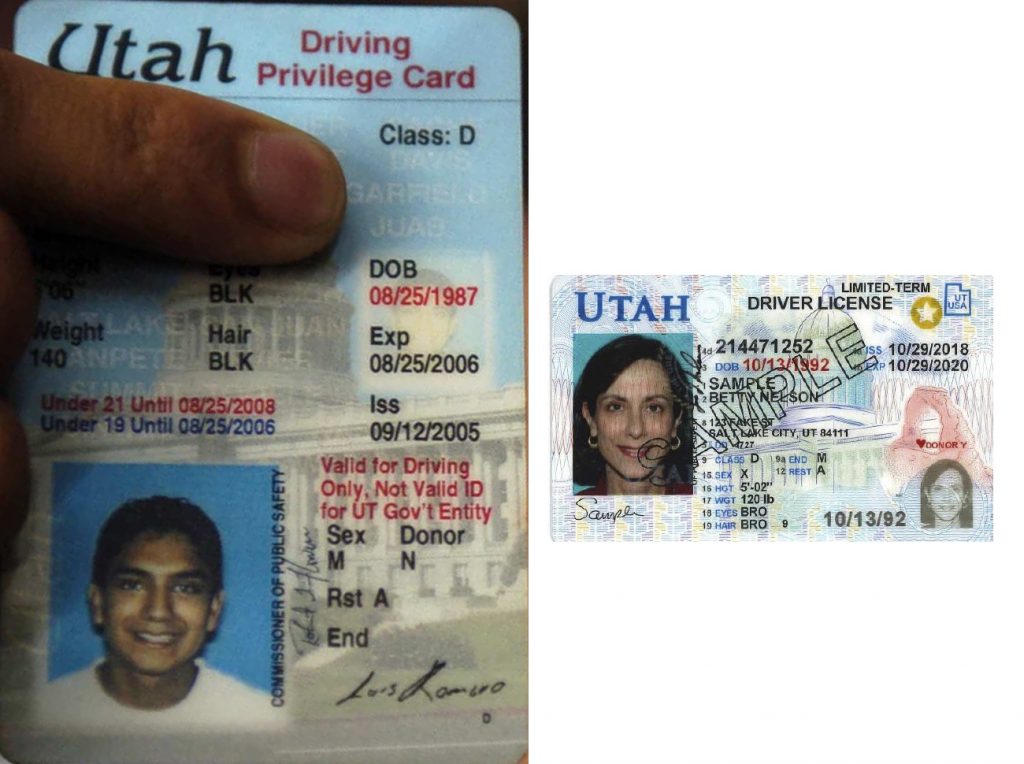
Delaware and Vermont, meanwhile, allow their motor vehicle departments to give information to ICE solely for immigration enforcement.
And in Oregon and Maryland, ICE can directly access statewide law enforcement databases, including driving records. No request required.
A spokesperson for the Oregon State Police, which manages the statewide law enforcement database, did not answer repeated questions about whether the state prohibits ICE from accessing data for investigations that do not involve criminal activity. Maryland’s Department of Public Safety and Correctional Services referred that question to ICE’s parent, the Department of Homeland Security. ICE did not respond to a request for comment about that.
ICE accessed Maryland’s law enforcement database – which contains drivers’ personal information – over 4,800 times in the past year and a half. ICE also conducted 37 facial recognition searches through the state’s Image Repository System. Maryland did not clarify how many of these incidents involved drivers’ license data, again referring the question to Homeland Security.
“It shouldn’t be a risk to get a driver’s license. …It makes me mad that people will have to think about data, that their information can be given to ICE,” said Juan Manuel Guzman, state advocacy director of the youth-led immigrant rights group United We Dream. He said he got his license in Maryland in 2014, when the state allowed undocumented immigrants to do so.
“Whenever you give agencies – it could be ICE, it could be the CIA – free rein and unchecked power, they can go through so much data and use it dangerously,” he said. “I think it’s extremely concerning.”
ICE pursues drivers’ information
As more states permitted undocumented immigrants to drive, federal immigration authorities began contacting state motor vehicle departments to help identify someone in a photo or to see if a person was living under an alias.
A 2019 Washington Post investigation found that ICE and the FBI submitted thousands of facial recognition requests to state motor vehicle departments between 2015 and 2019. In Utah alone, dozens of searches were marked as having returned a “possible match.” It’s unclear how many of those requests involved criminal activity.
In May 2020, ICE published a report claiming it has a policy against agents requesting facial recognition searches unless they involve people suspected of criminal activity. The report says ICE supervisors regularly review these requests.
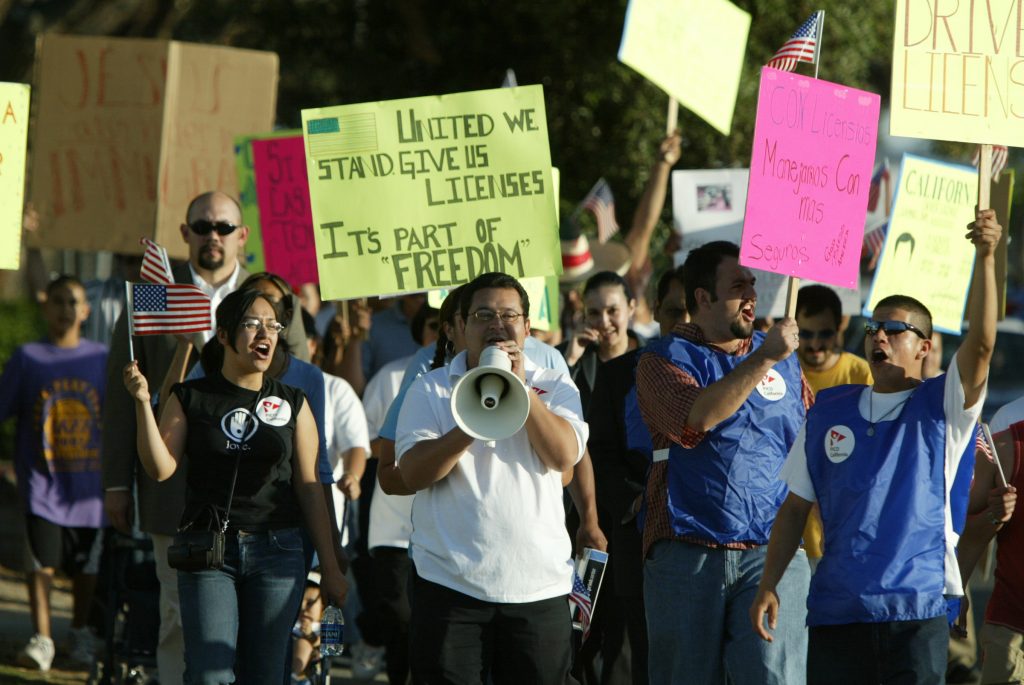
A spokesperson for ICE declined to say whether this is a new policy and, if so, when it went into effect. He said the agency does not make these requests simply to target individuals for deportation.
“Like other law enforcement agencies, ICE may use DMV data in support of ongoing criminal investigations, or to confirm information regarding individuals who are considered a priority for the agency,” Mike Alvarez, the spokesperson, said in an email.
But Public Integrity found that ICE requested information from at least three states’ motor vehicle departments for immigration enforcement — all after the date of the agency’s 2020 report.
ICE requested an individual’s address history, criminal history, traffic violation history and a photograph in September 2020 from the Connecticut Intelligence Center, which stores personal data from the state’s department of motor vehicles. The person was suspected of entering the country illegally, which is a civil infraction. The center denied the request.
In December 2020, ICE requested information from Washington state’s licensing department without stating the crime the individual allegedly committed. The department denied the request.
Colorado’s DMV received nine ICE requests related only to immigration enforcement in 2020, denying all of them.
For a handful of other states, including Maryland and Oregon, there’s no way to know.
Sen. Curt Bramble, a Utah Republican who sponsored the bill to grant driving privilege cards in that state in 2005, said it doesn’t bother him if ICE uses driver’s license data to track down undocumented immigrants. He said the driving cards benefit both undocumented community members, who can legally drive, and law enforcement, who can identify those breaking the law.
“There’s a reason why in the federal code that the legal term is ‘illegal alien,’” Bramble said. “The individuals have chosen to violate our immigration laws.”
He said advocates have never contacted him to express concern over this information sharing with ICE.
Utah’s Department of Public Safety’s public information officer, Lt. Nick Street, first told Public Integrity that ICE agents requested information solely for immigration enforcement at least twice in 2021, and DPS granted their requests. Street said the department believed the requests were related to “U visa inquiries,” in which undocumented immigrants are victims of crimes and help law enforcement investigate the activity.
Street later said these requests had to do with criminal activities aside from immigration enforcement. They were among almost 230 information requests from ICE that the public safety department granted in the past year and a half.
Better lives, more money
Allowing undocumented individuals to get driver’s licenses has economic benefits: Licensed drivers are more likely to purchase vehicles and other bigger-ticket items, including homes. More cars are registered and insured. With increased ability to commute to better jobs, undocumented people can contribute more to the economy.
Poverty declines at a faster rate in states with these policies, according to a 2016 report from Roger Williams University’s School of Law and Latino Policy Institute.
Karla Reyes, 34, is a mother of four and a chef at a Little Caesars in Virginia. Her husband, Rosendo Martinez, is a landscaper who recently received his driving privilege card.
“He was paid $180 a day but got a $20 raise after he got his license. Now he makes $200 a day,” Reyes said through an interpreter.
Ovidia Castillo works as a housekeeper in Virginia. It takes an hour to get to the first house of the day: She doesn’t have a driving privilege card yet and must rely on her employer to get her there with up to five other women.
Castillo, 41, is a single mother to a 16-year-old son. She can’t wait to pass her driving safety course and start her own housekeeping business, gaining control of her schedule and more free time to spend with her son.
“My time does not belong to me,” Castillo said through an interpreter. “It feels like I don’t have feet.”
Once she can drive, Castillo will no longer need $14 taxi rides to and from evening English classes four days a week. She will be able to take her son, who has Asperger’s syndrome, to local educational programs too inconvenient by public transportation, where he can socialize with other children his age.
“When I have the independence to drive myself and my son where we need to go, it’ll feel like winning the lottery,” she said.
Getting licenses in order to learn English is a common theme among undocumented communities.
Guzman, the undocumented advocate who got his license in Maryland, said he was able to drive to community college and learn English in the evenings. His family got better job opportunities.
“When I have the independence to drive myself and my son where we need to go, it’ll feel like winning the lottery.”
Ovidia Castillo, mother of a 16-year-old son
“My family works in construction and cleans houses, and for us to be able to liberate ourselves from sometimes very abusive employers has been wonderful,” Guzman said. “They know you don’t have any other option, and it’s really awful when you don’t have another option.”
In Virginia, undocumented immigrants tried for years to persuade state lawmakers to allow them to drive. The bill finally passed in April 2020, after Democrats gained control of the Legislature, and went into effect in January.
The bill was first introduced years ago by a Republican who represents a conservative, rural area in southern Virginia. Marketed as an economic and safety incentive, the bill was proposed to ensure undocumented farmworkers could produce food for the state, said Monica Sarmiento, executive director of the Virginia Coalition for Immigrant Rights.
Advocates celebrated when the law was passed. But they saw it as a first step because it didn’t place restrictions on sharing personal data. At the time, General Assembly leadership wasn’t in favor of such restrictions, said Alejandro, with ACLU People Power Fairfax.
“It was then a strategic choice to listen to community members, who were telling us that they understood the risks and wanted licenses anyway,” Alejandro said. “It was better to have licenses without complete protection than to not have licenses at all.”
Legislators passed a data protection bill separately in March that went into effect July 1.
The legislation in Rhode Island would have included some of the country’s strongest data-sharing restrictions. The law would have prohibited state agencies from handing over information to immigration authorities unless ICE could provide an arrest warrant or a court order.
Rhode Island’s Senate voted 28-10 in favor of allowing undocumented immigrants to drive, but House leadership decided not to take up the bill before the session ended in June.
That’s as far as the measure has ever gotten, and proponents plan to try yet again.
But Raymundo has to get to work now. Night after night, she’s still looking over her shoulder as she drives.
Clarification: July 14, 5:15 p.m.: An earlier version of this story included a table that did not define “driver data” or “DMV records.” Both refer to drivers’ names, addresses and photographs.
This article first appeared on Center for Public Integrity and is republished here under a Creative Commons license.





















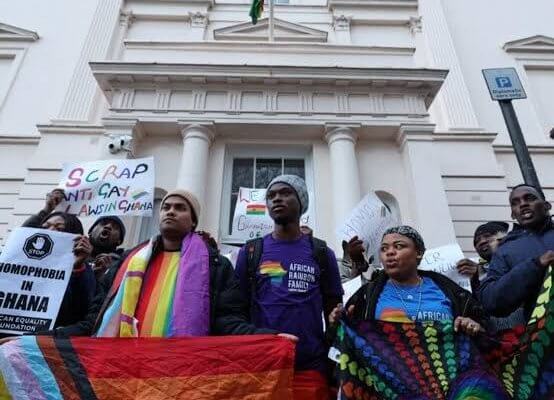



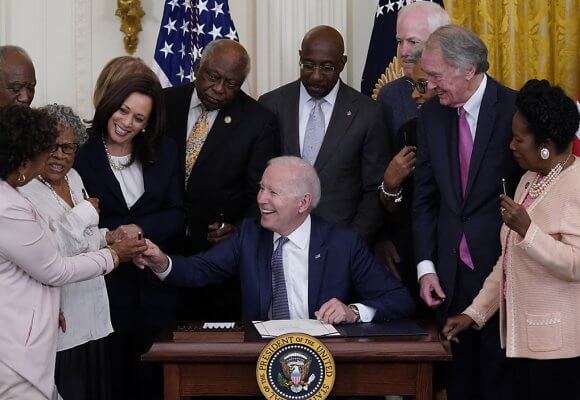


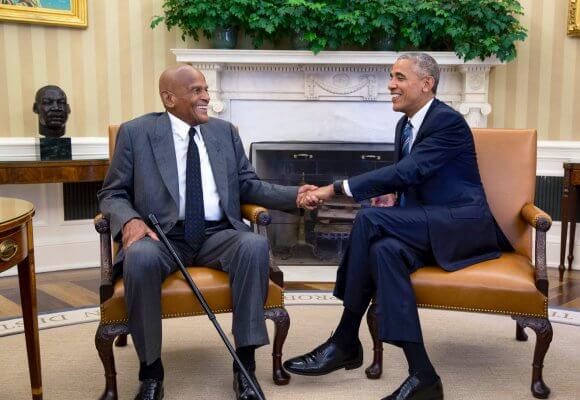


LEAVE A COMMENT
You must be logged in to post a comment.